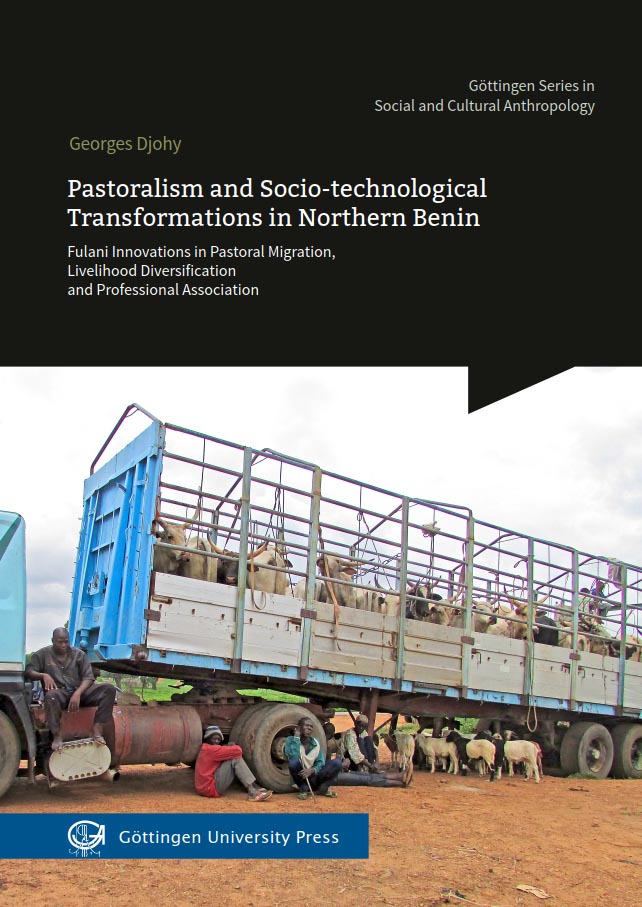New Publication: “Pastoralism and Socio-technological Transformation in Northern Benin”
The dissertation of Georges Djohy is now published as “Pastoralism and Socio-technological Transformation in Northern Benin” within the Göttingen Series in Social and Cultural Anthropology (Vol. 10).

Pastoralists throughout Africa face increasing pressures. In Benin, governmental development policies and programmes in crop farming are changing power relations between herders and farmers to favour the latter. How are the Fulani pastoralists responding to these threats to their existence? Georges Djohy explores the dynamics in local use of natural resources and in inter-ethnic relations resulting from development interventions. He combines the approaches of science and technology studies – looking at the co-construction of society and technology – and political ecology – looking at the power relations shaping the dynamics of economic, environmental and social change – so as to throw light on the forces of marginalisation, adaptation and innovation at work in northern Benin. Having worked there for many years, Djohy has been able to uncover gradual processes of socio-technological change that are happening “behind the scenes” of agricultural development involving mechanisation, herbicide use, tree planting, land registration and natural resource conservation. He reveals how farmers are using these interventions as “weapons” in order to gain more rights over larger areas of land, in other words, to support indigenous land grabbing from herders who had been using the land since decades for grazing. He documents how the Fulani are innovating to ensure their survival, e.g. by using new technologies for transport and communication, developing new strategies of livestock feeding and herd movement, and developing complementary sources of household income. The Fulani are organising themselves from local to national level to provide technological and socio-cultural services, manage conflicts and gain a stronger political voice, e.g. to be able to achieve demarcation of corridors for moving livestock through cultivated areas. They even use non-functioning mini-dairies – another example of development intervention – to demonstrate their modernity and to open up other opportunities to transform their pastoral systems. This book provides insights into normally hidden technical and social dynamics that are unexpected outcomes of development interventions.
For more information visit Göttingen University Press.